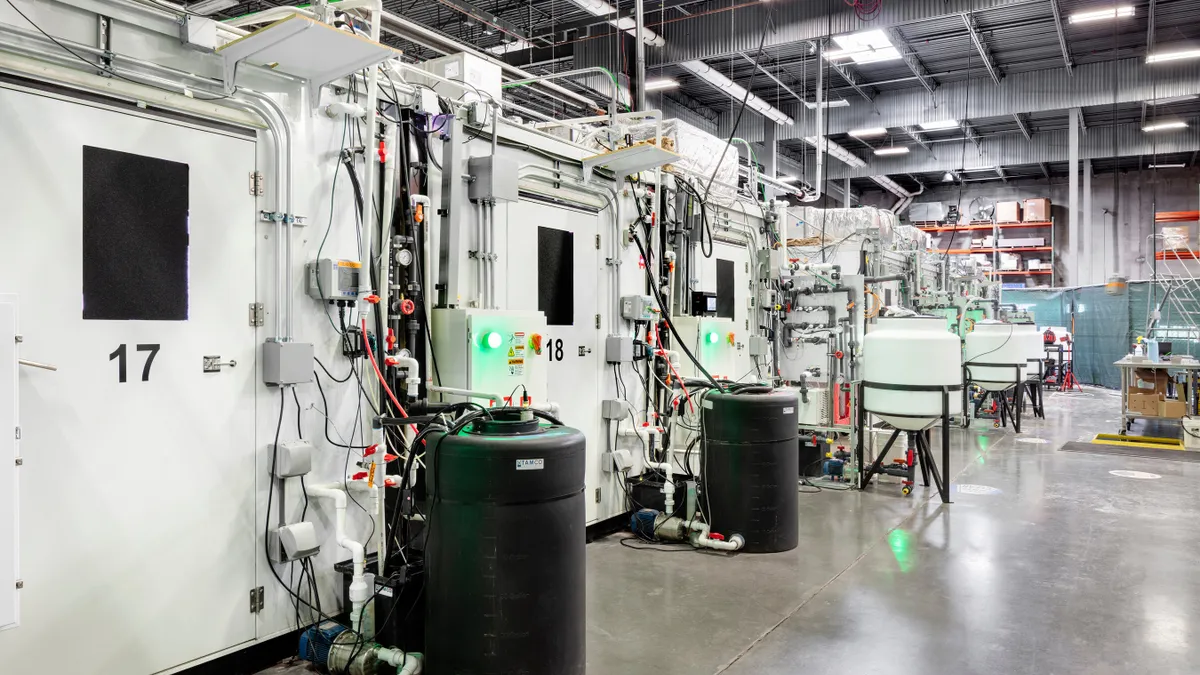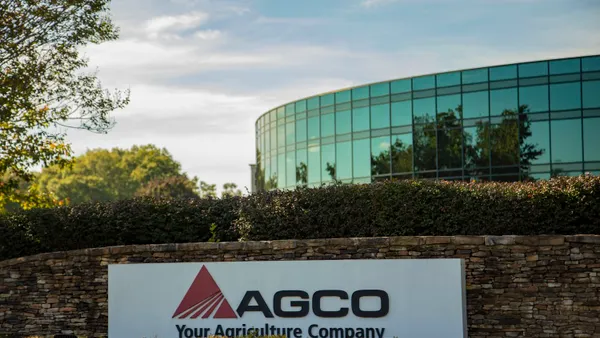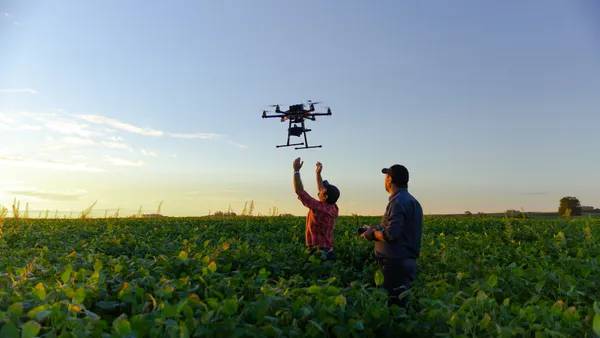Plenty advances world’s largest vertical farming research center
Greenhouse grower Plenty Unlimited Inc. has completed designs for an advanced research center in Laramie, Wyoming, that it says would be the world's largest indoor farming R&D facility.
The new facility will accelerate new crop deployment and expand research and development beyond produce, including food ingredients and pharmaceuticals, the company said Wednesday.
“We see a significant opportunity to leverage this new platform for R&D and indoor growing to build a global network of research centers to increase our impact on the future of both plant science and indoor farming,” Plenty CEO Aruma Kukutai said in a statement.
In July, Plenty said it will expand into the Middle East through a joint venture with Mawarid Holding Investment, investing hundreds of millions of dollars into vertical farms in Abu Dhabi that grow strawberries indoors.
Plenty, who counts Whole Foods and Walmart among customers, is using advanced genetics, hardware and data analytics technology to grow a variety of crops indoors, from berries and tomatoes to peppers and squashes. The new Wyoming facility will allow Plenty to develop new crops at a faster rate and expand its portfolio of plants.
“What we’re building in Wyoming is truly unlike anything else in the world — you’d have to go to Wageningen in the Netherlands to come close,” Plenty CEO Aruma Kukutai said in a statement.
Plenty received a $20 million grant to help with infrastructure and construction costs for the roughly 60,000-square-foot facility. The company is set to break ground on the project in spring 2025 and is looking to open in summer 2026.
Syngenta teams on sustainable pest control in Asia
Syngenta Biologicals will collaborate with agtech firm Provivi to develop a pheromone-based crop protection product aimed at controlling detrimental pests affecting corn and rice crops in Asia.
The companies are developing two pheromone solutions to help farmers manage against yellow stem borer in India and fall armyworm in Thailand, with plans to bring new products to market in 2026.
Pheromones can be leveraged into a powerful and safer pest control that interferes with mating behaviors, preventing reproduction and spread of harmful organisms, according to a release.
Syngenta and Provivi have previously worked on bringing Nelvium, another pheromone-based crop protection product, to Indonesia to control rice stem borer insects.
“Farmers need solutions that effectively address pest pressure while ensuring sustainability on their farms, particularly as pest threats evolve with climate change,” Jonathan Brown, Syngenta’s global head of biologicals and seedcare, said in a statement.
Institute of Food Technologists names Mizzou’s agriculture dean president
The Institute of Food Technologists appointed Christopher Daubert to be the next president of the international food science nonprofit and society, effective Sept. 1.
Daubert, vice chancellor and dean of the University of Missouri College of Agriculture, Food and Natural Resources, succeeds Sean Leighton, global vice president of food safety, quality and regulatory at Cargill, Inc. Leighton completed his one-year term on Aug. 31.
Prior to joining the University of Missouri in 2017, Daubert spent more than two decades at North Carolina State University in Raleigh, where he was head of the food, bioprocessing and nutrition sciences department. He has a bachelor of science in agricultural engineering from Penn State University and doctorate in agricultural engineering from Michigan State University.
“IFT brings together all of my professional interests — educating excellent students; creating healthy, safe and sustainable food products; and advocating for the importance and impact of the field of food science,” Daubert said in a statement.
IFT also named Bigelow Tea Vice President Peggy Poole president-elect. She will lead the organization starting Sept. 1, 2025, and has over 40 years of leadership experience at food companies including Kraft Foods, Häagen-Dazs and Leprino Foods.











